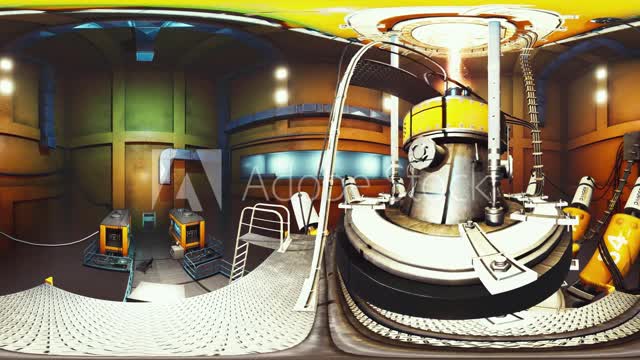Premium Only Content

Indian scientists extract record uranium from seawater that could power nuclear plants
http://festyy.com/edTJjm
Indian researchers, in a bid to push nuclear reactors towards renewable sources, have extracted record uranium from seawater.
With existing technologies, we are far from extracting this element from seawater cost effectively. (Photo: Getty)
HIGHLIGHTS
Uranium reserves found naturally are on a course to reach exhaustion
seawater contains 4.5 billion metric tons of uranium
Indian researchers captured over 95% uranium within two hours
As the world faces the effects of climate change, and pressure mounts to reduce emissions from fossil fuel-based energy sources, countries are looking at newer ways to switch to renewable, including shifting existing technologies to non-polluting methods.
Now, a group of Indian researchers have demonstrated a way in which nuclear energy can go truly renewable.
But wait. Isn't nuclear power a renewable source of energy? Well, kind of. Let us explain.
Also Read | Facts on India's nuclear power
IS NUCLEAR ENERGY RENEWABLE?
Nuclear power, mostly used in the production of electricity, is widely considered to be a renewable source of energy. However, the raw material that is used to generate nuclear power through a process called fission is non-renewable. Nuclear power plants need a specific form of uranium called Uranium-235.
Now, this is a depleting resource.
Uranium reserves found naturally are on a course to reach exhaustion within a century, which means that countries will have to look for alternatives to generate this critical element that powers nuclear plants across the world. The world at the moment has a uranium reserve of 7.5 million metric tons.
Seawater contains 4.5 billion metric tons of uranium. (Photo: Reuters)
THE ANSWER LIES AT SEA
In an attempt to address this worry, a group of scientists at the Indian Institute of Science Education and Research (IISER), Pune, attempted to extract uranium from seawater. Their attempts were successful and the findings were published in the journal Energy & Environmental Science by the Royal Society of Chemistry.
"With rising global energy demand and environmental concerns associated with fossil fuels, sustainable energy supply to the global community remains a great challenge. Large-scale uranium extraction from seawater (UES) is widely considered as reconciliation to increasing global energy demand and climate change crises," the scientists said in their paper.
Researchers estimate that seawater contains 4.5 billion metric tons, nearly 1,000 times more uranium that conventional sources. But, with existing technologies, we are far from extracting this element from seawater cost-effectively. Experts have said that uranium recovery from seawater is extremely challenging due to its very low concentration in comparison to the high abundance of interfering ions.
Also Read | Mysterious Chile sinkhole doubles in size, can submerge Statue of Unity
WHAT THE INDIAN SCIENTISTS DID
The team of researchers at IISER have developed a rare ionic macroporous metal-organic framework (MOF), which can effectively capture uranium. They managed to capture 96.3 per cent of uranium within two hours, which is in sharp contrast to the other existing adsorbent. A proper absorbent combining the features of high capacity, excellent selectivity, and ultra-fast kinetics has been a long challenge.
Uranium reserves found naturally are on a course to reach exhaustion. (Photo: Getty)
They collected seawater from the Arabian Sea (Juhu beach), Mumbai for uranium extraction and the absorbent resulted in a record uranium uptake capacity of 28.2 mg per gram in only 25 days and "satisfies the remarkable uranium extraction from seawater standard only in 2 days compared to existing adsorbents including commercially available materials reported so far."
About us https://bit.ly/3GUPFOa
Contact us +919942258153 kvk.subadhra@gmail.com
https://cfecagy56cy1g-cbz4hyczfx3t.hop.clickbank.net
-
 29:05
29:05
Man in America
13 hours agoDid the Fed Just Admit Gold Will Be Revalued? This Could Change EVERYTHING
18.1K3 -
 45:54
45:54
MattMorseTV
3 hours ago $0.27 earned🔴55 MILLION immigrants are UNDER REVIEW. 🔴
18.2K24 -
 3:15:07
3:15:07
TheItalianCEO
4 hours agoLast Stream before I go - Playing The Finals
9.92K -
 1:14:43
1:14:43
JustPearlyThings
4 hours agoPearl Reacts: 20 Black Conservatives DESTROY Radical Feminist Activist | Pearl Daily
31.6K14 -
 LIVE
LIVE
This is the Ray Gaming
2 hours ago $0.04 earnedThursRAY Night LIVE with the BOYS! | Rumble Premium Creator
34 watching -
 LIVE
LIVE
The UC Zone
5 hours ago🔴LIVE - THE UC ZONE - NEW UPDATE TO OFF THE GRID?!?
10 watching -
 2:09:22
2:09:22
Robert Gouveia
7 hours agoTrump WINS Appeal! 🚨 Letitia James BLOWN OUT! Biden Scandal BOMBSHELL!
34.1K22 -
 3:15:52
3:15:52
Barry Cunningham
6 hours agoBREAKING NEWS: PRESIDENT TRUMP ON PATROL IN WASHINGTON D.C.
59K27 -
 13:09:35
13:09:35
LFA TV
17 hours agoLFA TV ALL DAY STREAM - THURSDAY 8/21/25
153K26 -
![[your]NEWS - Become a PAID Journalist - With Sam Anthony](https://1a-1791.com/video/fww1/68/s8/1/i/4/a/b/i4abz.0kob-small-yourNEWS-Become-a-PAID-Jour.jpg) 1:10:00
1:10:00
Kat Espinda
19 hours ago[your]NEWS - Become a PAID Journalist - With Sam Anthony
14.4K1